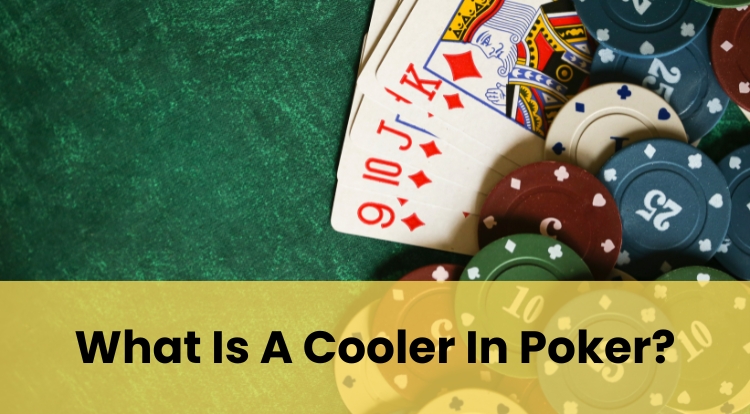
In the world of poker, some terms might seem a bit puzzling at first, and "cooler" is one of them. Whether you’re just getting to grips with the basics of poker or even if you’ve got a bit of poker experience under your belt, a cooler is a term worth learning as it refers to an event that every player will likely experience sooner or later.
Imagine you're playing a hand where you're sure you’ve got a winner, only to find out your opponent has an even stronger hand. It can be both surprising and a bit of a sting.
In this post, we'll explore what a cooler really means in poker, how it differs from a bad beat, and how you might handle it when it's your turn at the table. Let’s dive deeper into this intriguing aspect of the game and come out more prepared for your next poker session.
What Does Cooler Mean In Poker?
In poker, a "cooler" refers to a hand where a player has a very strong set of cards but loses to an opponent's even stronger hand. This isn't due to poor play or bad strategy; rather, it's just an unfortunate scenario that is bound to happen every so often.
Imagine two players with nearly unbeatable hands facing off. For instance, one might have a flush, but the other holds a full house. Both players have strong hands and may have played them well, but the outcome relies entirely on the chance of the draw, leaving one beaten despite having a strong set of cards.
Coolers are often seen as unavoidable parts of the poker experience. They're not necessarily a reflection of skill but part of the chance element that comes about through the cards that are dealt. This is what makes poker thrilling yet unpredictable.
The key with coolers is understanding they're a normal part of the game. Even the best players encounter them. The most important takeaway is not to let coolers impact your overall strategy or confidence. Recognising a cooler when it happens can help keep emotions in check and keep you from making reactive, potentially costly mistakes in future hands.
Cooler Vs Bad Beat In Poker
In poker, both coolers and bad beats can lead to a player losing a hand that looked like they had a good chance of winning. However, these are two distinct concepts.
A cooler occurs when two players have very strong hands, with one outmatching the other. Imagine you have a set of Queens, but your opponent has a set of Kings. Both hands are strong, but the outcome is simply due to the deal of the cards rather than any error in play or decision-making.
On the other hand, a bad beat happens when a player with a strong hand loses to an even less likely hand. This usually involves the underdog hand improving on the final cards dealt. An example would be if you have a pair of Aces, and your opponent defeats you with a lower pair that gets upgraded to three-of-a-kind by the river.
How To Deal With a Cooler In Poker?
Dealing with a cooler in poker can be challenging, but staying calm is key. Remember, coolers are a natural part of the game and happen to everyone, so don't take them personally.
First, try to keep your emotions in check. It's understandable to feel frustrated, but reacting emotionally might lead to rash and poor decision-making in future hands. Take a deep breath and remind yourself that a cooler is just down to chance, not a mistake on your part.
Next, revisit your strategy. Take a moment after the hand to analyse the situation. Did you play your hand correctly? Usually, with coolers, it isn’t a case of playing your hand wrong; it is the result of the chance element of poker. Recognising this can help boost your confidence as you recognise nothing could be done.
It's also beneficial to maintain perspective. Over the long run, your skills and strategy matter more than one bad hand that was the result of chance. Keeping focused on your overall play can help you to see coolers as just part of the ups and downs in poker.
Finally, don't let a cooler affect your enjoyment of the game. Poker is meant to be fun and engaging, so try to appreciate even the tricky parts. By accepting coolers as part of the poker experience, you can enjoy the game more, knowing everyone faces them eventually.
Remember to always play responsibly and within your means. Never chase losses and know when it might be time to walk away.
**The information provided in this blog is intended for educational purposes and should not be construed as betting advice or a guarantee of success. Always gamble responsibly.
